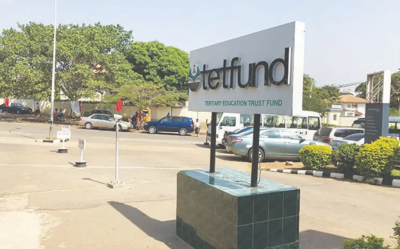The Academic Staff Union of Universities (ASUU) has strongly criticized a provision in the proposed Tax Reform Bills that recommends the scrapping of the Tertiary Education Trust Fund (TETFund). ASUU’s President, Professor Emmanuel Osodeke, described the plan as a direct attack on Nigeria’s public education system, warning that it would deepen inequality and deny children from low-income families access to quality higher education.
Scrapping TETFund: A Devastating Blow to Public Universities
In an interview with Channels TV on Thursday, Professor Osodeke expressed concerns about the implications of the proposed bill, which was reportedly submitted to the National Assembly by the federal government without consulting stakeholders in the education sector.
“TETFund is the only reliable source of funding for public universities in Nigeria,” he said. “When you destroy it, you destroy public universities and deny the children of the poor access to education. This will keep them in perpetual slavery.”

Professor Osodeke emphasized that TETFund is a product of ASUU’s advocacy and has been instrumental in the infrastructural development of public universities, polytechnics, and colleges of education across Nigeria.
ASUU: Lack of Stakeholder Consultation
Criticizing the federal government for bypassing consultations with key stakeholders, Osodeke said, “The Vice Chancellors were not consulted, Pro Chancellors were not consulted, and ASUU was not involved in the discussions. Yet, the government wants to abolish a framework that has transformed Nigerian universities.”
He argued that it was undemocratic for such a significant policy shift to be proposed without input from the very individuals and groups who understand the intricacies of Nigeria’s educational needs.
TETFund Versus NELFUND
According to the ASUU President, the proposed plan is to replace TETFund with the Nigerian Education Loan Fund (NELFUND). While supporting the creation of NELFUND, Osodeke argued that its funding should not come at the expense of TETFund.
“Let the TETFund Act of 1993, which has revolutionized Nigerian universities, remain intact. If the government wants to fund NELFUND, it should explore other avenues like deducting a percentage from the Value Added Tax (VAT),” Osodeke suggested.

He criticized the government for proposing to merge TETFund with other agencies like the National Agency for Science and Engineering Infrastructure (NASENI) and the National Information Technology Development Agency (NITDA), which would reduce TETFund’s budget to 2% by 2030 and eventually eliminate it entirely.
ASUU: The Role of TETFund in Education
Professor Osodeke highlighted TETFund’s transformative impact on tertiary education in Nigeria.
“Today, when you visit Nigerian universities, polytechnics, and colleges of education, 90% of the physical infrastructure you see is a product of TETFund. The fund has been a game changer in tertiary institutions’ infrastructural development, and other African countries like Ghana are now emulating it.”
He cited Ghana’s Education Trust Fund (GETFUND), which was modeled after Nigeria’s TETFund and is funded through VAT, as an example of the program’s success.
Response to Tax Committee Chairman’s Statement
Professor Osodeke also criticized Taiwo Oyedele, Chairman of the Presidential Committee on Tax and Fiscal Reform, for allegedly downplaying the implications of the proposed bill. Oyedele had claimed that no part of the bill explicitly recommended the scrapping of any agency.
“He is playing with words,” Osodeke remarked. “By 2025, TETFund’s share of the consolidated fund will drop to 50%. By 2026, it will reduce to 33%. By 2030, it will be zero. This is nothing short of a gradual dismantling of TETFund.”
He urged the government to view TETFund not as a tax but as an investment in Nigeria’s future. “When companies contribute to TETFund, they are not paying a tax. They are investing in the production of graduates who will work for them,” he argued.
The Way Forward
Professor Osodeke called on the government to engage academia in finding alternative funding sources for NELFUND without undermining TETFund.
“If you are serious about NELFUND, challenge the academia. We will provide solutions on how to fund it without tampering with TETFund. There is no need to dismantle a system that has proven successful for decades,” he concluded.
Conclusion
ASUU’s stance reflects the union’s commitment to safeguarding public education in Nigeria. With TETFund playing a critical role in the development of tertiary institutions, its proposed elimination has sparked widespread concern among educators and other stakeholders. The debate over the Tax Reform Bills underscores the need for inclusive decision-making and the prioritization of Nigeria’s educational future.









